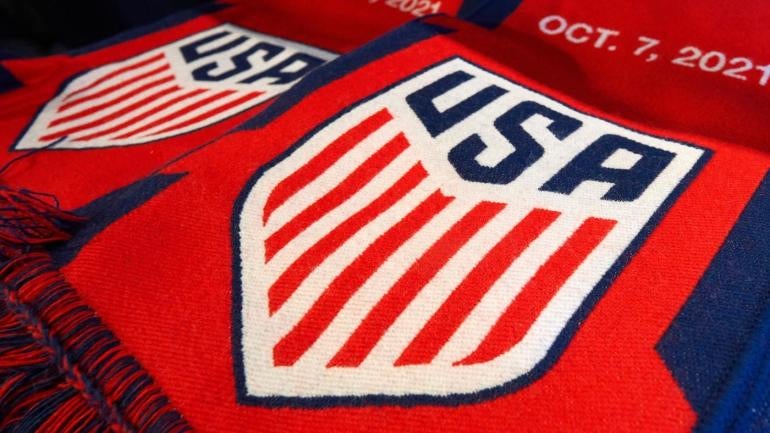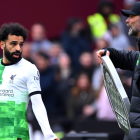
There's a new turn in an ongoing legal battle between Relevant Sports Group and the duo of U.S. Soccer and FIFA. The legal battle stems from Relevent's desire to host a La Liga match in the United States. After being denied the right to stage the match, Relevent originally filed an antitrust lawsuit in September of 2019 that was then dismissed in July of 2020 before the sports group then appealed two months later. In March of 2023, the 2nd Circuit Court ruled in favor of Relevent in the antitrust case, leading to U.S. Soccer petitioning for the case to be heard by the Supreme Court.
The highest court in America has yet to decide on whether to hear the case and now the Biden administration has weighed in as well, offer a brief arguing in favor of upholding the 2nd Circuit Court's decision. If the eventual ruling is in favor of Relevent, it could be one that has the potential to change soccer forever. Andrew Visnovsky, Senior Counsel at Vela Wood, a boutique corporate law firm with a specialty in sports law, "If there's a decision in favor of Relevent, it starts to call into question FIFA's ability to regulate the sport."
"The meta question that's being asked is, what is FIFA's authority to govern the game under U.S. law, and where is the line for that authority?"
Here's what to know:

Golazo Starting XI Newsletter
Get your Soccer Fix from Around the Globe
Your ultimate guide to the Beautiful Game as our experts take you beyond the pitch and around the globe with news that matters.
Thanks for signing up!
Keep an eye on your inbox.
Sorry!
There was an error processing your subscription.
What's the case about?
The crux of the case revolves around Barcelona trying to play a league match against Girona in the United States, which wasn't allowed in 2018 due to a new FIFA rule barring foreign soccer clubs from holding official domestic matches outside of their official league territories, which obviously includes the United States. After the rule was enacted, Barcelona withdrew from plans of playing in the United States, and then two teams from Ecuador were also refused permission to play a league match in the United States in 2019.
Relevant's plans led to FIFA announcing a new policy barring league matches being played on foreign soil. While Barcelona did withdraw from the match, Relevant sued in 2019 in the New York Supreme Court following the USSF refusal to sanction a match between Ecuadorian first-division sides Barcelona and Guayaquil. That lawsuit was withdrawn with the claims then going to federal court stating that the USSF actions violated antitrust law. Relevent attorneys argued that FIFA's rule "explicitly restrains competition."
That series of events led to the antitrust litigation which has now been appealed all the way up to the highest court in the land. In short, the antitrust laws this case centers around are a collection of laws regulating business conduct and organization to promote competition and prevent monopolies. While in American sports such as Major League Baseball and the National Football League, staging league matches in different countries is commonplace, that's not the case in soccer where there are domestic league competitions and strong international competitions such as the Champions League.
This decision in March of 2023 by the Court of Appeals found that U.S. Soccer could be held liable if FIFA's rule on not staging league matches in foreign countries could be found to violate antitrust law. That is, even if FIFA might not be able to be held accountable if its rules violated American antitrust laws, U.S. Soccer still could be. This ruling led to U.S. Soccer filing a petition for the Supreme Court to review the case.
In a brief filed by solicitor general Elizabeth B. Prelogar, the U.S. government said that the Supreme Court shouldn't hear the case, allowing a 2023 decision by the United States Court of Appeals to stand. The Supreme Court will still decide if the case should be heard or not.
In its brief the government argued that the USSF, "did not act independently. Rather, it participated in a membership association that adopted a policy binding the association's members, and it invoked that policy as its stated rationale for denying approval of the proposed matches."
The government added the USSF "was not a randomly selected FIFA member, nor was it a passive or unknowing bystander to the adoption and enforcement of the 2018 policy."
Relevent Sports Group is based in New York City and was co-founded by Miami Dolphins Owner Stephen Ross. Operators of the International Champions Cup, Relevent has connections with many top European sides that come through the United States during preseason such as Bayern Munich, Chelsea, Borussia Dortmund, and Barcelona, which is where this case can potentially spread if the ruling is in favor of Relevent.
What are the next steps?
The briefing doesn't change what the next steps are in the legal proceedings, where it's up to the Supreme Court now to decide if they will hear and review the case. If they opt not to, the trial process would continue in the Court of Appeals. Since the ruling by the 2nd U.S. Circuit Court was that U.S. Soccer could be held liable if FIFA's rule is found to violate antitrust law, this is far from over, which simply goes to show how long the legal process can take. It has already been close to five years since the case began.
What could a ruling in favor of Relevent mean?
If, eventually the courts find in favor of Relevent and that ruling is upheld, not only would that allow league games from other leagues to be staged in the United States, but it could also have a far-reaching impact on FIFA's ability to enforce their bylaws around the world.
"That would mean it would call into question say, [FIFA's] agent regulations in the United States which have already been challenged in Europe that create a cap on agent fees," Visnovsky explained
"It could call into question the entire training compensation and solidarity mechanism system that FIFA has spent a lot of time building out and growing. FIFA has an entire set of rules regulating the status and transfer of players, that create limits on the transfer of players, that it could not be able to enforce depending on how narrow the decision is. It could make it harder for other national governing bodies to regulate the sport, especially the professional side and business side of the sport."
Loosening FIFA's hold on regulation of soccer, while in some ways positive, is something that could have an extremely widespread impact on soccer all around the world. Looking at America, for example, with more top-level players already coming to Major League Soccer, changes to agent regulations could theoretically make it easier for teams that spend to attract top players, but conversely changes to solidarity payments would become a negative. There are already challenges for American youth clubs to get compensated for players who have joined MLS academies so this could further muddy an already cloudy picture.
It's a case that could almost create a Pandora's Box in global soccer. FIFA already has limited scope for stopping things like a European Super League, so stripping back FIFA's enforcement powers further would only create a soccer free-for-all. Considering one issue getting people into soccer in America is that people want to watch the top players in the world, which can't always be done in Major League Soccer, a ruling in favor of Relevent could make that a possibility if competitive games can come stateside.
"If say Relevant wins, you'll have a decision that says, FIFA cannot bar these matches from happening. I don't know that it's the way that they'll go because it could go a lot of different ways. Hypothetically, if they say that Relevent can do this and FIFA blocking it is impermissible, then you get into a line drawing question of what can FIFA do to regulate their sport and manage the competition and be a governing body. What is permissible?"
It's back to the free-for-all and how this case could have quite a cascading effect. While the courts can keep the scope of what the singular case impacts as a small one, to only speak to matches being played in the United States, there is nothing that will stop others from pushing that line further which Visnovsky goes in-depth on.
"I don't know where you draw the line. FIFA has a hard bar on international transfers under the age of 18," Visnovsky said "That is obviously restraint on trade because players can't move to the U.S. to play, they can't leave the U.S. to play, clubs can't capture transfer fees for players under the age of 18. So it clearly has an anti-competitive effect for under-18 players."
When it comes to youth transfers, while those are examples and it's good to limit moves for kids that young, would Real Madrid have preferred to bring in Endrick from Brazil earlier? What about Cavan Sullivan, reportedly on the verge of agreeing to join Manchester City? At the moment, he's in a bit of a limbo, as he's only 14, but City are reportedly doing what they can to secure his transfer now so if allowed they'd have every reason to try to push to get him into the system earlier.
Some of these hypothetical scenarios may never come to fruition, but they're good to lay out the magnitude of what we're dealing with here. Even promotion and relegation are things that could be put to the test although that's when we're really going down rabbit holes. Who knows, while we're preparing for a summer of soccer involving Copa America, next there could be Premier League games coming to a town near you.





















